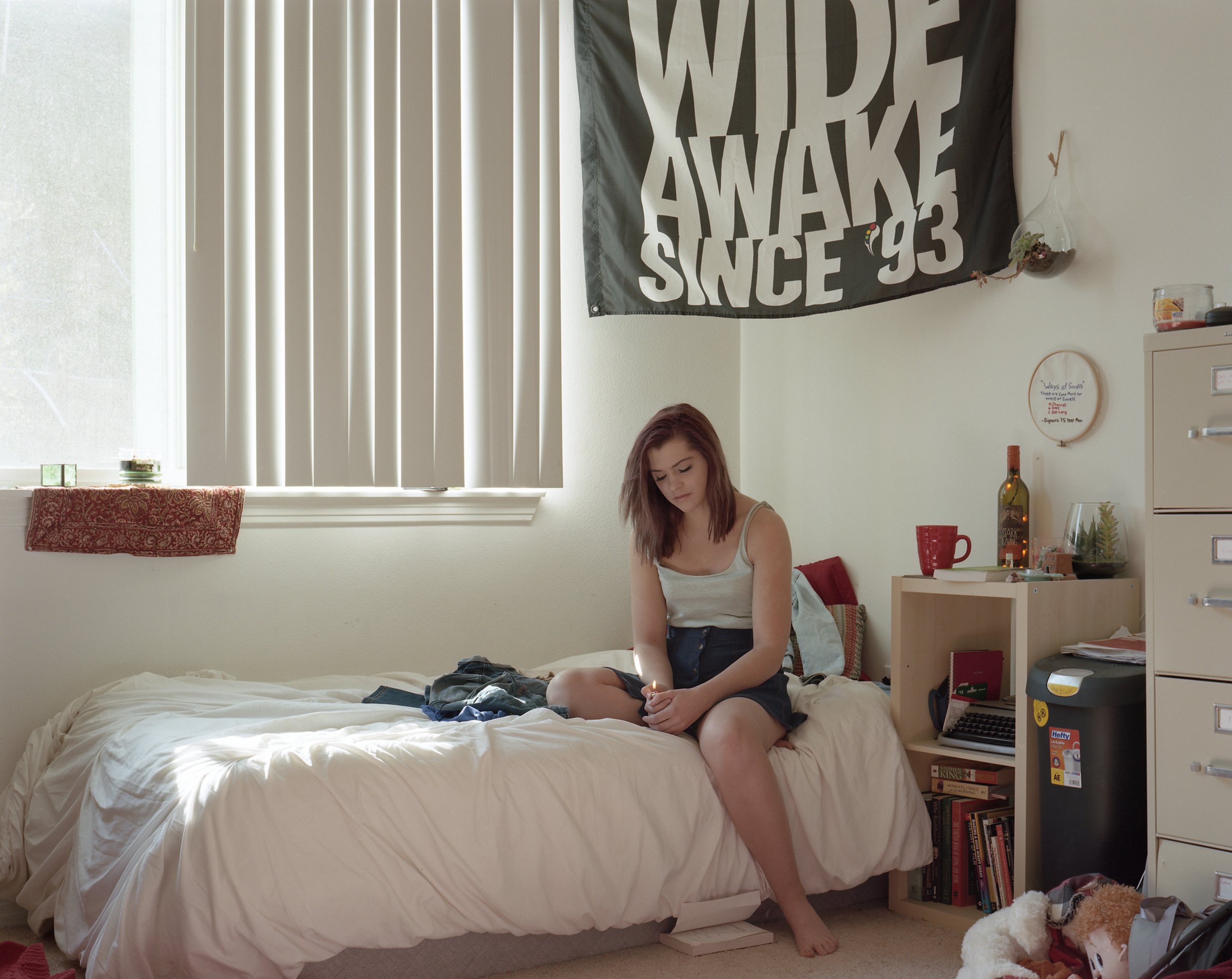
I remember nights where my eyes danced on the popcorn ceiling until the small town I lived in stirred awake around me. Those nights to me were like everyone else’s nights up with a cold. I was sick. The difference, however, was that I couldn’t go into the world and tell people I was up all night with depression to explain the bags under my eyes, my lack of energy or my irritability. No, a cold was acceptable. It’s a physical, unfortunate thing that occurs to all of us time and time again — a sickness that’s not your fault. But depression and anxiety, to those around me, was something I could suck up. I was just sad. I could choose to be happy.
I couldn’t explain to those who didn’t understand that I do chose to be happy every single day. I loved so many aspects of life. I was an optimist by nature, and I constantly marveled in the beauty of things around me. But my depression and anxiety weren’t a state of mind or demons dancing on the back of my brain, they were real, physical and exhausting conditions.
Depression and anxiety was throwing up every morning before school. It was forgetting how to breathe. It was shaking. It was doing your favorite thing with the love of your life and still feeling empty, even sick. It was a crippling exhaustion that made getting out of bed the hardest chore — not because a reflection of laziness, but an example of the sheer toll this disease took on my body. It was rehearsing simple things before I said them. It was dancing eyes on popcorn ceilings.
Read more: Teen Depression and Anxiety: What Parents Can Do
For me, at 12, 13, 14, 15…it was an overwhelming burden that I considered part of my personality. I wasn’t aware I had depression or anxiety, I was under the impression that these nights, and these panic attacks, and this lack of motivation was just who I was. This was one of the scariest things about my diseases, the other was that I would be like this forever.
We are in a society that is slowly but surely acknowledging mental illness and bringing its diseases to light. This means that less people are unaware of their mental health disorders, and less people are seeing themselves in hopeless situations. They have a word and a condition to apply to their illness and its debilitating symptoms.
Providing uncensored, real knowledge is the biggest step we can take to help our children, friends and family members find their road to health. Sweeping these conditions under the rug, belittling them as just being sad or scared, or hoping they go away is the worst possible thing that we can do to cure someone who is suffering.
The fact is, the sooner someone acknowledges their condition, the easier it is for them to find coping strategies to live with their condition, and in time, beat it. The best thing we can do is to open the conversation and urge our society towards acceptance and understanding. Not only to make those with depression and anxiety feel less alone, but to also give individuals more resources and accessibility to the information they need.
Read more: Behind TIME’s Teen Anxiety Cover With Lise Sarfati
At 15, I wasn’t quite sure where or how to get it. The majority of the world simply saw a girl going through a phase, or a girl who was too sensitive and needed to suck it up. When in reality, all I needed was to understand my own condition. If I had had that guidance and acceptance at a younger age, even as a child with severe anxiety, I could have developed coping strategies sooner, and been on a clearer path to fixing my conditions. I’m 20 now, and have spent the past few years trying to spread awareness and acceptance.
My conditions have yet to end, but with the knowledge I’ve gained, I’ve found ways to cope with my anxiety and depression. There are still some days when I’m sick to my stomach or struggle to get out of bed. But each morning that I do get up, I stand up a stronger person. These flaws are part of a condition I am overcoming more and more with passing time, not a part of who I am, and everyday I take pride in that. We as a society need to teach our children, and each other, to do the same. When we learn to cope, rather than brushing issues under the rug, we learn to grow — and eventually, heal.
Faith-Ann Bishop is a film student in Los Angeles, California.
More Must-Reads From TIME
- The 100 Most Influential People of 2024
- How Far Trump Would Go
- Scenes From Pro-Palestinian Encampments Across U.S. Universities
- Saving Seconds Is Better Than Hours
- Why Your Breakfast Should Start with a Vegetable
- 6 Compliments That Land Every Time
- Welcome to the Golden Age of Ryan Gosling
- Want Weekly Recs on What to Watch, Read, and More? Sign Up for Worth Your Time
Contact us at letters@time.com